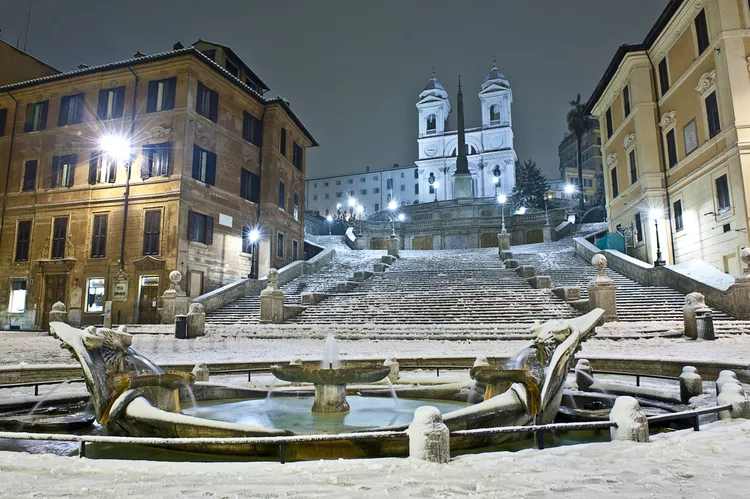Summary
Why Winter is an Ideal Time to Travel to Italy
For people who enjoy colder climates, winter can be a prime time to explore Italy. The majority of Italy experiences fewer tourists during this season, resulting in less crowded museums and minimal lines at prominent attractions. This season also features a vibrant array of opera, symphony, and theater performances. Additionally, for winter sports enthusiasts, Italy’s mountainous regions offer abundant opportunities for skiing and snowboarding.
Reasons to Visit Italy in Winter
There are several compelling reasons to consider a winter trip to Italy, especially during this traditionally quieter tourism season:
- Popular historical attractions are significantly less crowded compared to summer, particularly in major cities like Florence, Rome, and Milan.
- Aside from the Christmas and New Year’s holidays, travelers can find bargain prices on airfares and accommodations in most Italian locales, excluding ski resorts.
- Italy boasts excellent venues for winter sports and skiing, including the Piedmont locations from the 2006 Winter Olympics, the Alps, the Dolomites, and Mt. Etna in Sicily. However, during peak ski season, hotel deals may be limited.
Winter Weather Conditions
Italian winter weather varies greatly, from relatively mild temperatures along the coastal areas of Sardinia, Sicily, and the southern mainland to very cold and snowy conditions inland, particularly in the northern mountains. Iconic tourist spots such as Venice, Florence, and the charming hill towns in Tuscany and Umbria can also experience light snowfall during winter.
Most of Italy generally sees its highest rainfall in November and December, making winter less rainy compared to fall. Travelers may encounter some rain or snow, yet they might also be rewarded with crisp, clear days, requiring only a light jacket and sunglasses for comfort.
Packing Essentials for Winter Travel
Should you decide to visit Italy during the winter months, it is advisable to pack layers of clothing. This allows you to adjust to changing weather, adding or removing sweaters and jackets as needed. Although snow can occur in most parts of Italy during winter, chilly-to-cold, rainy weather is more likely. Ensure you include a medium-weight waterproof jacket, durable shoes or boots suitable for rain or snow, gloves, a scarf, a warm hat, and an umbrella in your luggage.
Winter Events and Celebrations
The winter season in Italy is marked by festive occasions such as the Christmas season, New Year’s, and the colorful Carnevale season. Major national holidays include Christmas Day, New Year’s Day, and Epiphany on January 6, celebrated by the arrival of La Befana, who brings gifts to children. On these holidays, a majority of shops, tourist attractions, and services will be closed, as will many dining options. Be sure to confirm with local accommodations regarding open restaurants on these significant days. The Italian Mardi Gras, known as Carnevale, is celebrated across Italy, beginning ten days to two weeks before the actual date, which is 40 days before Easter. The most renowned Carnevale celebration takes place in Venice, while Viareggio in Tuscany is famous for its elaborate and humorous Carnevale floats.
Numerous saints’ days are commemorated during winter, which can lead to some temporary closures. Various festivals and events take place in Italy during December, January, February, and March.
Useful Travel Tips
With early winter sunsets, travelers can enjoy more time exploring cities after dark. Many cities illuminate their historic monuments at nighttime, enhancing the romantic ambiance of evening strolls. From late November to early January, most towns and cities sparkle with Christmas lights, transforming picturesque streets and piazzas into magical wonderlands. Winter presents ample opportunities for cultural activities and performances in Italy’s exquisite historic theaters.
- Rome and Naples experience the mildest winter weather among Italy’s major cities. Naples is particularly famous for its vibrant Christmas nativities, while many flock to Rome for the beloved midnight mass at Vatican City on Christmas Eve.
- While you will encounter smaller crowds and competitive hotel prices throughout much of winter, Christmas and New Year’s typically lead to peak tourism season in various cities, making discounts scarce and bookings highly competitive.
- The Carnevale festivities in Venice are also a major draw for tourists, thus early planning is essential if you aim to partake in the celebrations.
- Keep in mind that many museums and attractions may close earlier during winter. However, thanks to lighter crowds, your sightseeing experience will remain enjoyable. In rural areas, museums and sites may only operate on weekends or have limited hours throughout winter.
- Some hotels, bed-and-breakfasts, and restaurants in popular seaside resort towns and summer countryside locations may close for part or all of winter. Nevertheless, many open establishments often offer winter discounts, except in ski resort areas.




